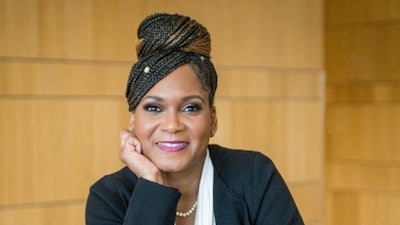While players in the NCAA Tournament were diverse, head coaches and administrators lagged far behind.
That's the conclusions from the new report, “Racial and Gender Equity for Black Women Student-Athletes,” authored by Dr. Shaun R. Harper, founder and executive director of the University of Southern California Race and Equity Center. Harper depicts each team in the Sweet 16 of the NCAA Division I Women’s Basketball Tournament. The head coach is also shown, and demographic data on the university is provided.
Data across Division I is also provided. By example, Black women comprise 21% of the head coaches in NCAA Division I women’s basketball but were outnumbered by white male coaches by 5 percentage points. Despite the presence of Black players in the tournament — the majority on most teams — Black women comprise just 3.8% of undergraduates at the 68 participating institutions. Additionally, some are located in states where governors or legislators have banned or severely restricted diversity, equity, and inclusion (DEI) initiatives.
Division I women’s basketball has extensive student-athlete diversity, but Harper noted the attitude appears to be that it is fine for Black student-athletes to generate extensive revenue in attendance, sponsorship, and alumni support, but representation and supports for these student-athletes is notably absent.
“It’s not fine. It’s absurd. It’s also harmful to Black people, higher education, and our democracy,” Harper wrote. He added that the players deserve more Black faculty, more culturally responsive classrooms, and more Black head coaches and athletic administrators. Dr. Joy Gaston Gayles
Dr. Joy Gaston Gayles
Dr. Joy Gaston Gayles of North Carolina State University (NC State), which has women’s and men’s teams headed to their respective Final Fours, researches intercollegiate athletics. She said the information is well known, but Harper's report is much needed in the face of the growing anti-DEI legislation.
“You can’t value diversity, equity, and inclusion when it benefits you, when it lines your pockets, when it is of interest to folks who have a lot of power, privilege, and money, and then condemn it,” says Gayles. “He makes it plain what is already happening in a way that you just can’t ignore it.”




















